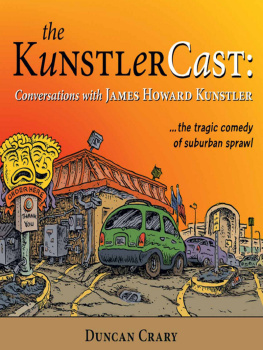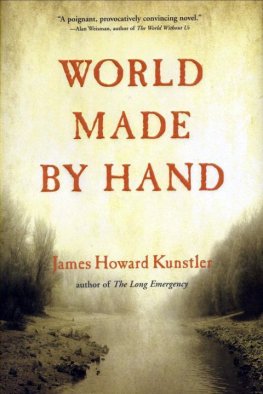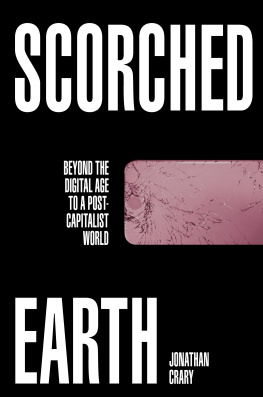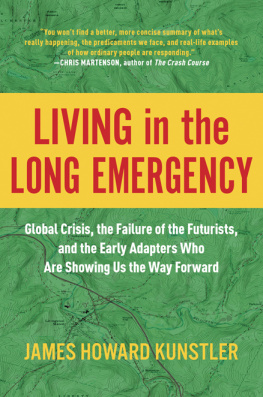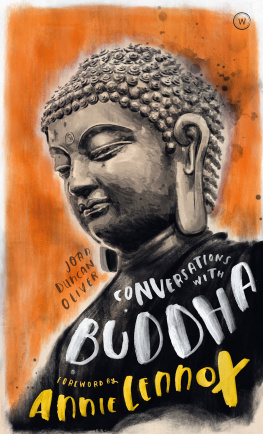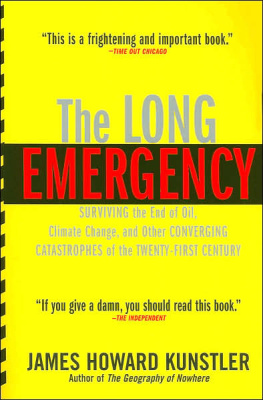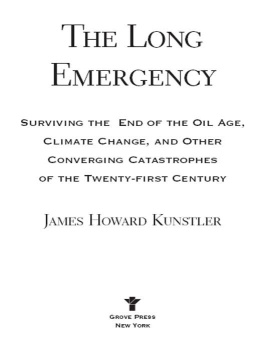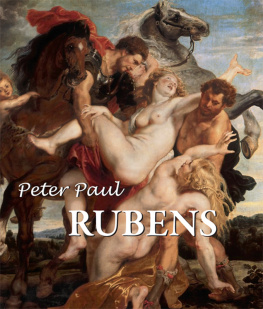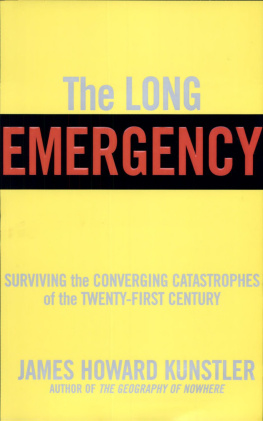
Advance praise for The KunstlerCast
James Howard Kunstler plainly has a lot to say about the state of the world. And while much of it is bad, bad news aggressively, congenitally, perhaps even fatally bad he speaks with such vim and vigor that you find yourself nodding in agreement rather than looking for a noose. Duncan Crary wrangles these free-wheeling conversations masterfully. A bracing dose of reality for an unreal world.
Stephen J. Dubner, co-author, Freakonomics and SuperFreakonomics
James Howard Kunstler is one of the great thinkers of our time. Duncan Crary has compiled a collection of interviews with him that are so enlightening yet casual that the reader feels like theyre eavesdropping into the den of Kunstlers prodigious mind.
Andrew D. Blechman, author, Leisureville
Kunstler is the most authoritative, audacious and prescient writer of urbanism in America today. His analysis of the converging factors closing in on cities in the 21st Century is critical to understand the future of America, and its options moving forward. Kunstler understands cities, and the failures of suburban sprawl, like no other. Prepare to be enlightened, infuriated and amused.
Gregory Greene, Director, The End of Suburbia
Jim and Duncan: erudite, eloquent, with the good sense to be living the way they want right now. Here they converse at length and with good humor about the hilariously grotesque North American nightmare of car-addicted suburban sprawl. Make use of their wit and wisdom to plan your escape from it, or sit back and laugh with them if you already have.
Dmitry Orlov, author, Reinventing Collapse
dmitry.orlov@gmail.com
Earlier praise for the KunstlerCast podcast, which this book is based on:
...some of the smartest, most honest urban commentary aroundonline or off.
Columbia Journalism Review
...the KunstlerCast delivers the goods, with inspired rants on a variety of subjects related to American places (and non-places) and the coming peak oil reality.
Treehugger.com
the
KuNSTLeRCaST:
conversations with JAMES HOWARD KUNSTLER
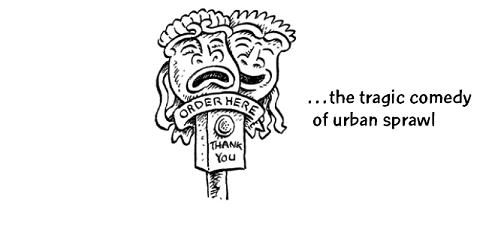
DUNCAN CRARY

Copyright2011 by Duncan Crary. All rights reserved.
Cover design by Diane McIntosh. Art by Ken Avidor.
Printed in Canada. First printing October 2011.
Paperback ISBN: 978-0-86571-693-3 eISBN: 978-1-55092-472-5
Inquiries regarding requests to reprint all or part of The KunstlerCast
should be addressed to New Society Publishers at the address below.
To order directly from the publishers, please call toll-free (North America)
1-800-567-6772, or order online at www.newsociety.com
Any other inquiries can be directed by mail to:
New Society Publishers
P.O. Box 189, Gabriola Island, BC V0R 1X0, Canada (250) 247-9737
New Society Publishers mission is to publish books that contribute in fundamental ways to building an ecologically sustainable and just society, and to do so with the least possible impact on the environment, in a manner that models this vision. We are committed to doing this not just through education, but through action. The interior pages of our bound books are printed on Forest Stewardship Council acid-free paper that is 100%post-consumer recycled (100% old growth forest-free), processed chlorine free, and printed with vegetable-based, low-VOC inks, with covers produced using FSC stock. New Society also works to reduce its carbon footprint, and purchases carbon offsets based on an annual audit to ensure a carbon neutral footprint. For further information, or to browse our full list of books and purchase securely, visit our website at: www.newsociety.com
LIBRARY AND ARCHIVES CANADA CATALOGUING IN PUBLICATION
Kunstler, James Howard
The KunstlerCast : conversations with James Howard Kunstler /
[interviewed by] Duncan Crary.
ISBN 978-0-86571-693-3
1. Kunstler, James Howard Interviews. 2. Authors, American 20th century Interviews. 3. Sociology, Urban United States. I. Crary, Duncan II. Title.
HT119.K85 2011 307.760973 C2011-905948-7

www.newsociety.com
For Grace and John Crary
Special thanks to
Eileen Sheehan, Roger Noyes, Philip Schwartz,
Ian and Craig White, Peter Albrecht, Tom Reynolds,
Ingrid Witvoet, Alison Bates, Jes Constantine, Ben McGrath,
Matt Dellinger, Andrew Blechman, Wendy Anthony,
the Congress for the New Urbanism and our listeners.
Contents
I lived in lies all my life,
And Ive been living here for a long, long time,
I know its been coming down a while now.
John J McCauley III, Deer Tick
Art Isnt Real (City of Sin)
THERES A PASSAGE in Moby-Dick where Herman Melville compares two lone whaling ships crossing the Pacific to strangers crossing the illimitable Pine Barrens of New York State. If these travelers were to encounter each other in such inhospitable wilds, he explains, it would be natural for them to give mutual salutation and stop for a while to interchange their news of the world. In whaling argot, this is called a gam.
More than a century and a half has passed since Melville wrote those words, and little remains of the illimitable Pine Barrens he described on the outskirts of Albany. But the place has become a new kind of wilderness that is equally inhospitable to this traveler. It is a terrain of parking lots, shopping malls, subdivisions and highways. It is a geography of nowhere that stretches from the edge of my town to yours. But we will not be adrift here alone forever.
Kunstler will be here soon. And when he arrives, well have ourselves a gam.
JAMES HOWARD KUNSTLER has been called a lot of things. The worlds most outspoken critic of suburban sprawl. A caustic hero of New Urbanism. A peak oil provocateur. Curmudgeon. Jeremiah. Doomer. Dystopian. Generalist. Social critic. Crank.
He usually just goes by Jim.
My first encounter with Jim was through The Geography of Nowhere, a highly acclaimed, landmark polemic about the failures of suburbia. I was nineteen when I discovered that book, just a few years after its 1993 publication. And Ive been amusing, enlightening and pissing people off with what I found between its covers ever since.
Like so many of my Generation X, I was hatched on a cul-de-sac in the American suburbs. As an adolescent, I grew deeply dissatisfied with that mode of living. It was monotonous, ugly and isolating, and I was acting out along with my peers in strange and bad ways. But it wasnt until Geography that I acquired the tools to be able to articulate the things I found profoundly wrong about the non-place of suburbia. Kunstlers acid wit was a laxative to my constipated feelings about our everyday surroundings. He seemed to put across, in a wickedly funny manner, all of the complaints and disappointments and frustrations that had been a lump in my throat for years. I knew suburbia sucked. What I lacked until I saw it in print was the vocabulary and framework that JHK used to back up the sentiment. I was never the same again.
Next page
